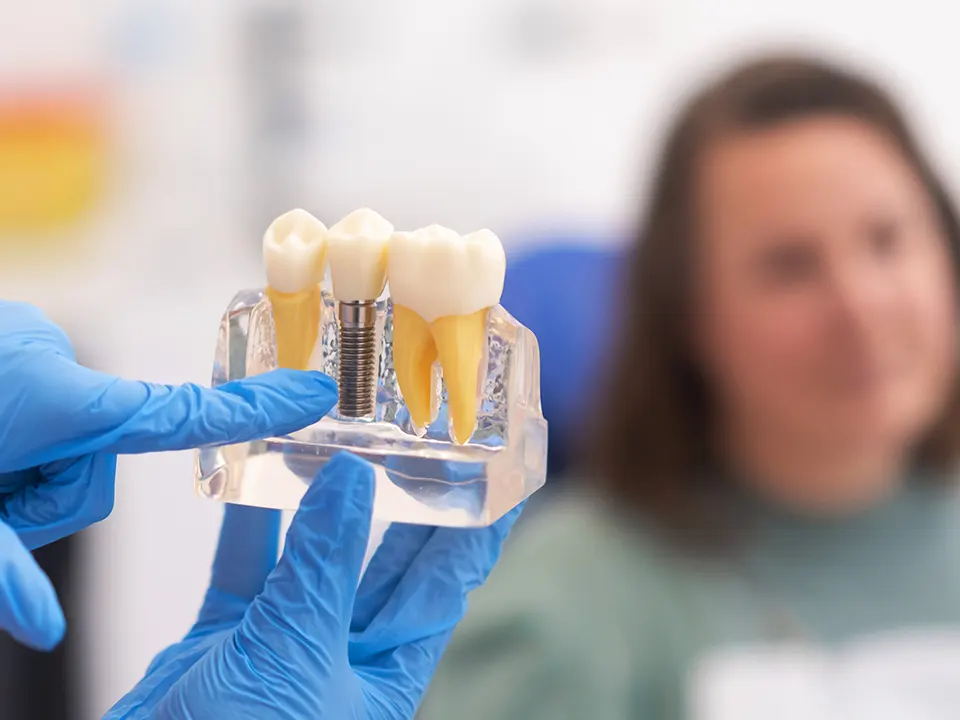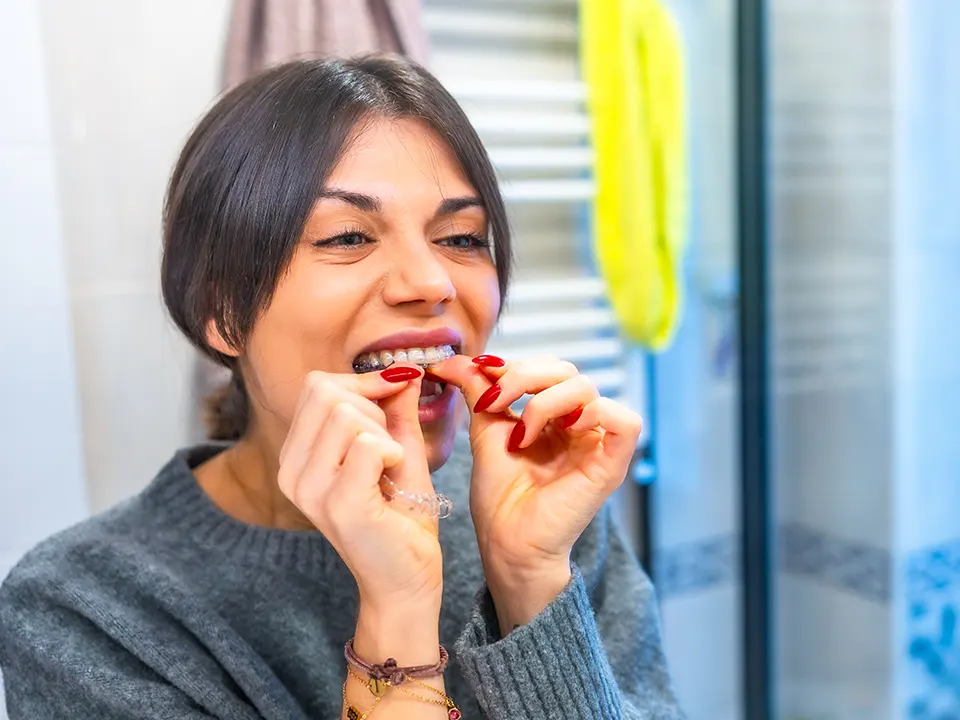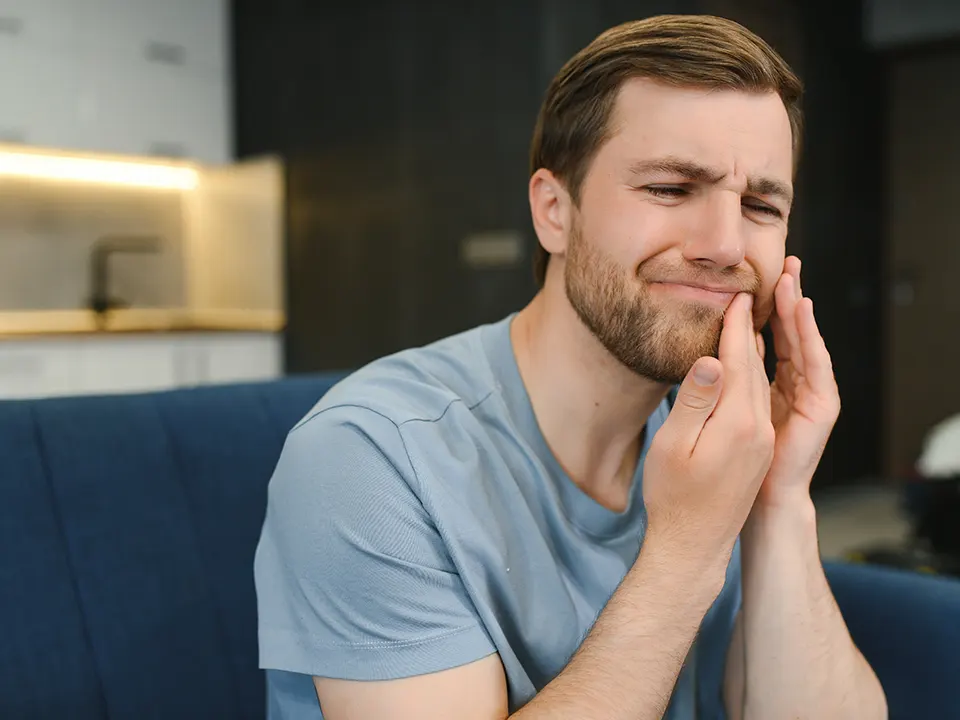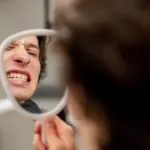
7 Reasons Why You Shouldn’t Ignore Bleeding Gums
July 14, 2025
Teeth Grinding Symptoms: What You Need to Know
September 17, 2025Waking up with a sore jaw, sensitive teeth, or a dull headache? You might be grinding your teeth in your sleep. This common condition, called bruxism, often goes unnoticed for months or even years. Most people don’t know it’s happening until the symptoms become more obvious or a dentist points it out during a checkup.
Teeth grinding symptoms can range from mild discomfort to serious dental damage. The good news is that once you recognize the signs, there are effective ways to protect your smile and improve your sleep.
1. Your Jaw Feels Sore or Tense in the Morning
If you regularly wake up with sore jaw muscles or a stiff feeling around your jaw joints, there is a good chance you are clenching or grinding your teeth while you sleep. This constant pressure can lead to tenderness, tension, or even pain when chewing or talking.
Over time, it may also contribute to disorders in the temporomandibular joints. If your jaw feels tired or achy in the morning, it is worth bringing up at your next dental visit.
2. Your Teeth Look Worn Down or Damaged
People with bruxism often develop visible signs on their teeth. You might notice flattened biting surfaces, chipped edges, or small cracks in the enamel. The grinding action slowly wears down your tooth enamel, making your teeth more sensitive to hot or cold foods.
These signs are often spotted during regular dental exams, so be sure to stay on top of those checkups. Your dentist can tell right away if your teeth are being damaged from grinding
3. Your Sleep Partner Hears You Grinding
If you sleep next to someone, they might be the first to notice your grinding habit. The sound of clenching, grinding, or gnashing is often loud enough to wake someone up.
Bruxism is considered a sleep-related movement disorder and often shows up alongside other sleep issues. If your sleep partner mentions hearing unusual noises at night, it could be a strong sign that your jaw is active while you sleep.
4. You Wake Up With Headaches
Morning headaches, especially those that feel like a dull ache in the temples, can be a common side effect of grinding your teeth. This happens because the tension in your jaw spreads to your head and facial muscles while you sleep.
If you are waking up with headaches and cannot figure out why, teeth grinding might be the missing link. Mention it to your dentist so they can help you find a solution.
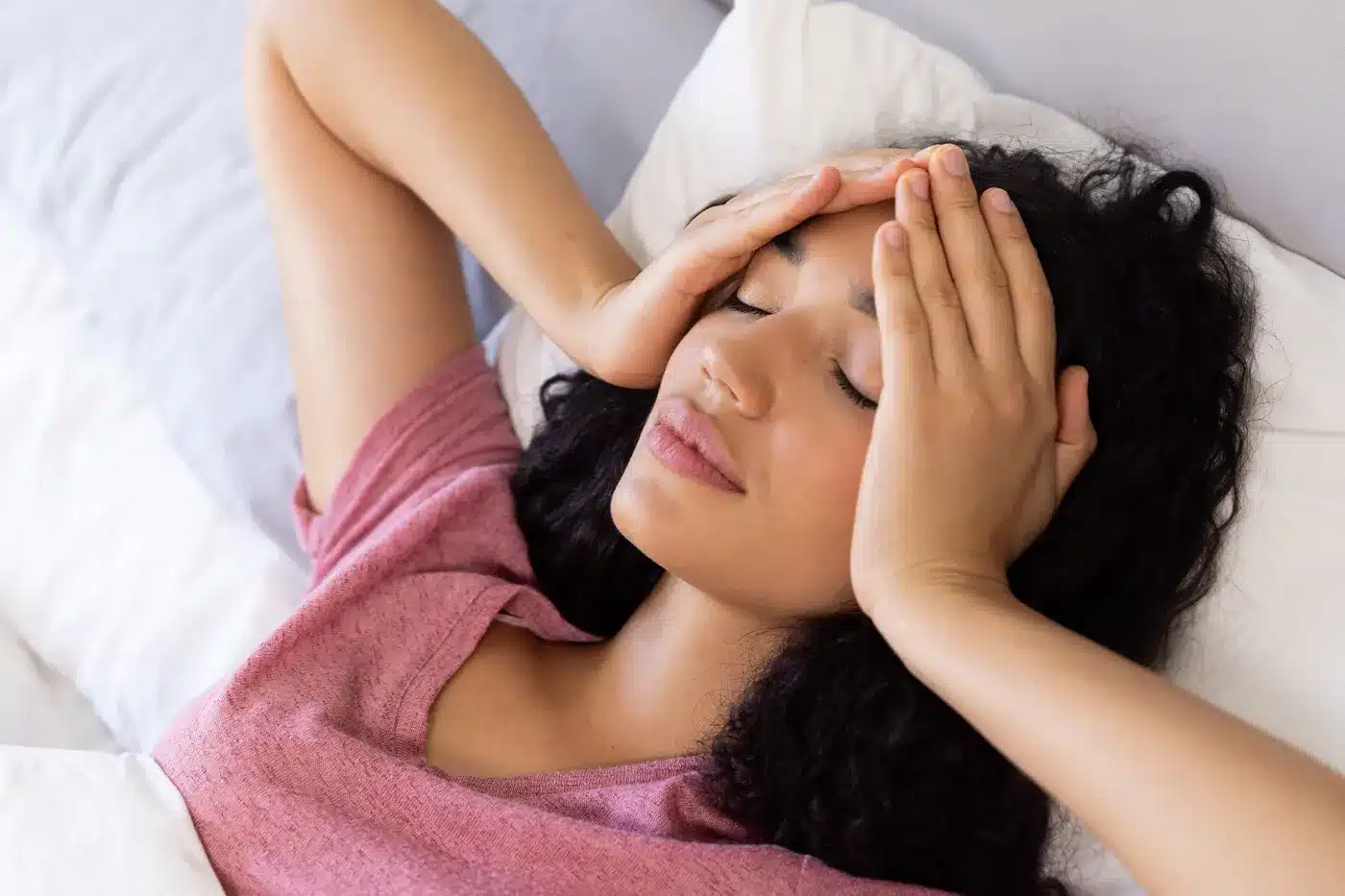
5. You Have Other Sleep Issues or Risk Factors
Teeth grinding is often connected to other risk factors and health conditions. These include high stress, anxiety, certain medications, attention deficit hyperactivity disorder (ADHD), and sleep disorders like sleep apnea.
At Regehr Family Dental, we always look at the full picture. If you are dealing with stress or other sleep problems, we can help figure out whether they might be contributing to your bruxism.
Struggling With Snoring or Poor Sleep? Solea Sleep Might Help
Sometimes grinding is just one part of a bigger issue related to breathing and sleep. If you also snore or breathe through your mouth at night, our Solea Sleep treatment may be worth exploring.
Solea Sleep is a quick, non-surgical laser procedure that gently tightens the tissue in your soft palate. This helps reduce the vibrations that cause snoring and improves airflow while you sleep. The entire treatment takes just five minutes and does not involve any needles or pain.
Here are a few key benefits of Solea Sleep:
- Quick, professional treatment done in one short visit
- No needles or invasive procedures
- Pain-free with virtually zero recovery time
- Immediate and long-lasting results
- Better sleep for both you and your sleep partner
Most patients experience relief for up to 12 to 15 months after just one session. If your grinding is connected to snoring or poor sleep quality, Solea Sleep might be the solution you need. You can learn more or book a consultation here.
How to Treat Teeth Grinding
Once you recognize the signs, your dentist can recommend treatment options to help manage the issue. Here are some of the most common solutions:
- A custom mouth guard that you wear while sleeping to protect your teeth
- Stress reduction techniques such as meditation or therapy
- Reducing caffeine and alcohol, which are common triggers
- Treating related sleep disorders or snoring with options like Solea Sleep
Your dentist will work with you to find the best path forward based on your symptoms and lifestyle.
Start Sleeping Better
Teeth grinding can sneak up on you, but the effects are real. From jaw pain to damaged teeth, the symptoms can take a toll over time. If you are experiencing any of the signs mentioned here, it is time to take action.
At Regehr Family Dental, we are here to help. Whether you need a custom mouth guard, guidance on managing stress, or advanced treatment like Solea Sleep, our dental team is here to support you. Contact us to schedule an appointment.

